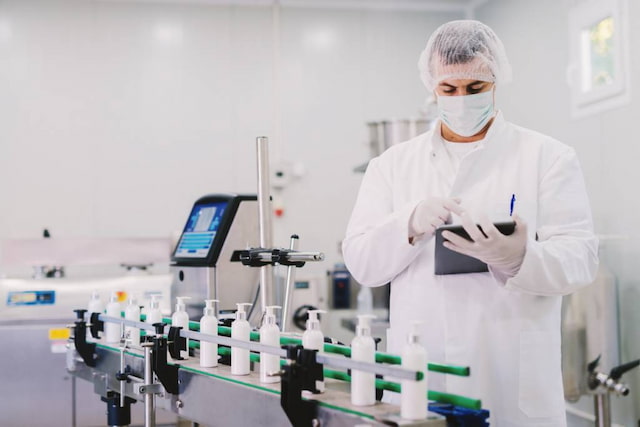The beauty industry is one of the fastest-growing industries worldwide, with a projected worth of 758.4 billion U.S. dollars by 2025. From skincare products to makeup, like face highlighter, the possibilities are endless. If you’re interested in working in the cosmetic industry, it’s crucial to choose the right curriculum to succeed. What education levels can you choose? How can you select the right school? What courses should you take during your education?
Bachelor, Master’s degree, Ph.D.: What Can You Choose?
The cosmetic industry is a versatile field, which offers opportunities to professionals with various educational backgrounds. Whether you’re interested in research and development, marketing, sales, or regulatory affairs, there’s likely a role for you.
Typically, a Bachelor’s degree in Cosmetic Science, Chemistry, Biology, or a related field can get you started in the cosmetics industry. With this degree, you could work as a cosmetic chemist, a product development specialist, a quality control analyst, or a sales representative.
A Master’s degree in Cosmetic Science or a related field can provide more specialized knowledge and may lead to higher-level positions. You might work in advanced product development, regulatory affairs, or even management roles in the cosmetic industry. If you are interested by a Master in Chemistry of Fragrances, Perfumes and Cosmetics, look for graduate schools that allow students to customize their own curriculum. You can find them by visiting a specialized directory or by seeking resources online.
A Ph.D. is often pursued by those interested in conducting research or teaching in the field of cosmetic science. A Ph.D. can lead to positions such as senior scientist, research director or professor. It can also open doors to executive-level jobs within cosmetic companies.

How to Choose the Right School?
Choosing the right school to learn cosmetic science or cosmetology is a vital step towards a successful career in this industry. Firstly, ensure that your chosen school is accredited by the government, which guarantees that the institution meets certain educational standards.
Secondly, scrutinize the curriculum. The program should provide a well-rounded education that covers theoretical knowledge and practical skills. It should include courses in various aspects of cosmetics, from formulation to product development.
The faculty’s expertise is also very important. Instructors should not only be experts in their field, but also exhibit a genuine enthusiasm for teaching. Tuition costs are another aspect to consider. Understand what costs are involved and whether there is financial aid available. Take the time to tour the premises and check the facilities. Modern, well-equipped labs and classrooms are indicators of good schools.
Career support services such as job placement assistance or internships can greatly enhance your career prospects post-graduation, so check if the school offers these. Lastly, consider the location of the school. If possible, choose a school located in a place conducive to your lifestyle and aspirations. Schools in major cities may offer more networking opportunities. Remember, research thoroughly and visit multiple schools before making a decision. This will ensure that your choice aligns with your career goals and personal needs.
What Will You Learn During the Courses ?
The curriculum for a Bachelor’s degree in Cosmetic Science includes the production of a basic to advanced cosmetic formulation. Product safety requirements, skin and hair anatomy, as well as physiology should also be covered.
A Master’s degree will give you an in-depth understanding of the chemistry behind cosmetics. You will also be provided with hands-on experience in formulating, developing and testing your own products. This will allow you to apply your knowledge and skills in a practical setting and to gain valuable industry experience that will help you succeed in your future career.
You can also choose a Master’s degree in Business Administration to learn strategic planning, marketing, sales and finance. This will prepare you for positions such as director or brand manager. Finally, a Ph.D. in Cosmetic Science covers research processes, formulation development, product safety, toxicology and regulation policy development.

